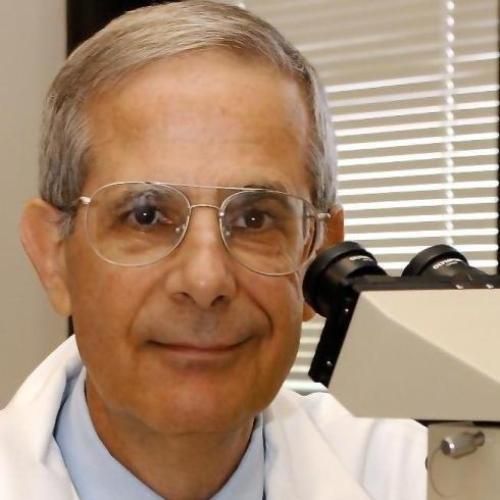Nitric oxide asa nonprotein regulator of hematopoietic cell proliferation and differentiation-relationship to malarial anemia
Malaria is extremely important, with approximately 500 million people infected and 1.5 to 2.7 million dying from the disease each year. Deaths are usually related to cerebral malaria and malarial anemia. Malarial anemia is a multifactorial anemia related to lysis of parasitized erythrocytes, hypersplenism, coexisting iron deficiency or chronic disease, and to erythroid hypoproliferation and dyserythropoiesis. Nitric oxide (NO), produced by NO synthase (NOS), plays an important role in resistance to infections (including malaria). We and others have noted that NO production is increased in children with mild P. falciparum infection (Anstey, et al. J Exp Med 184:557, 1996). NO has many actions, including inhibition of cell proliferation. We have noted that NO inhibits normal human bone marrow cell colony formation (erythroid > myeloid) (Shami & Weinberg. Blood 87:977, 1996). Also, Mabbot and Sternberg have found that NO is causally related to the anemia in Trypanozoma brucei-infected mice (Infect Immun 63:1563, 1995). The purpose of the current study was to determine if total body NO production (measured as urinary nitrite+nitrate:creatinine excretion ratios) and peripheral blood mononuclear cell (PBMC) NOS activity (measured as conversion of 14-C-labeled L-arginine to L-citrulline in vitro) in children with P. falciparum malaria correlate with the degree of anemia. African children from two areas were studied: the Muhimbili Medical Center in Dar es Salaam, Tanzania in eastern Africa, and the Albert Schweitzer Hospital in Lambarene, Gabon in central Africa. In asymptomatic malaria-exposed Tanzanian children, there was an inverse relationship between NO production and blood hemoglobin (r=-0.92; p=0.03; N=45). In Gabonese children with mild or severe P. falciparum malaria, PBMC NOS activity was 477±34 pmol L-citrulline/mg, and Hb was 8.4±0.6 gm/dL (N=17). This NOS level was high compared to normal US adults [30±7 (N=12)]. Gabonese PBMC NOS correlated inversely with Hb (r=-0.534; p=0.03; N=17). These results suggest that while NO may be important for host resistance to malaria, NO may also contribute to the anemia noted in malaria. Novel strategies are needed to prevent the deleterious effects of NO on bone marrow cells, while preserving the antimicrobial effects of NO on parasites.
Duke Scholars
Published In
ISSN
Publication Date
Volume
Issue
Related Subject Headings
- Immunology
- 1114 Paediatrics and Reproductive Medicine
- 1103 Clinical Sciences
- 1102 Cardiorespiratory Medicine and Haematology
Citation
Published In
ISSN
Publication Date
Volume
Issue
Related Subject Headings
- Immunology
- 1114 Paediatrics and Reproductive Medicine
- 1103 Clinical Sciences
- 1102 Cardiorespiratory Medicine and Haematology

